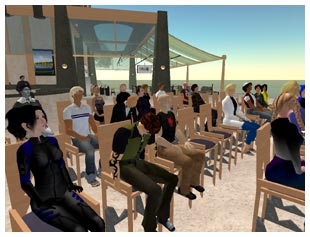Clickable Culture points to and has an entry on an AdAge article (registration req’d) discussing the marketing power inherent in Microsoft’s new XBox 360 console. From their post:
Unlike any other in-game marketing network, the new Xbox Live could offer marketers data on every player’s move through the Xbox Live system, every gaming and lifestyle preference, and every purchase.
Not news, but as expected, this new capability is moving into the mainstream discourse. When AdAge or another publication explains how vectors work and how it’s possible to “sense” what a player is doing in the game (e.g. looking at their billboard for 12.93252 seconds), then let’s see how excited they all really get… beyond the obvious numbers. One guy, Jamie Berger from IGN, has some good advice to all the drooling hawkers out there though:
Marketers need to tailor their approach and make it special and unique to the platform “not just an ad, but a brand experience,?” Mr. Berger said. “They need to use the medium in a way that adds value to the consumer and show that they’re embracing the gaming culture.”
(Edit: there’s also another article on AdAge titled “AdAge.com’s Advergame Chronicles – Tracking the Rise of a New Marketing Venue“, but that’s paid content, sorry. I’m cheap.)

